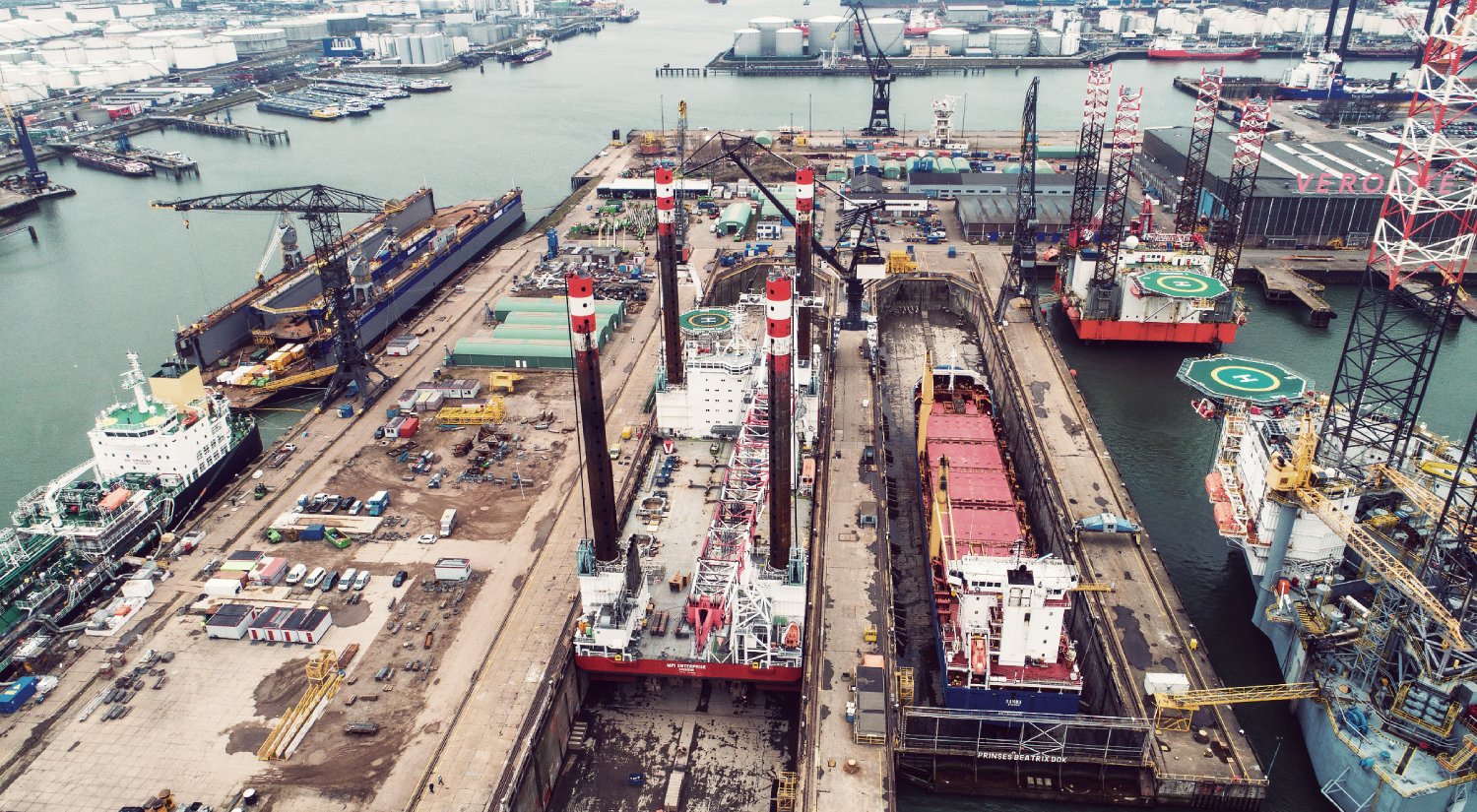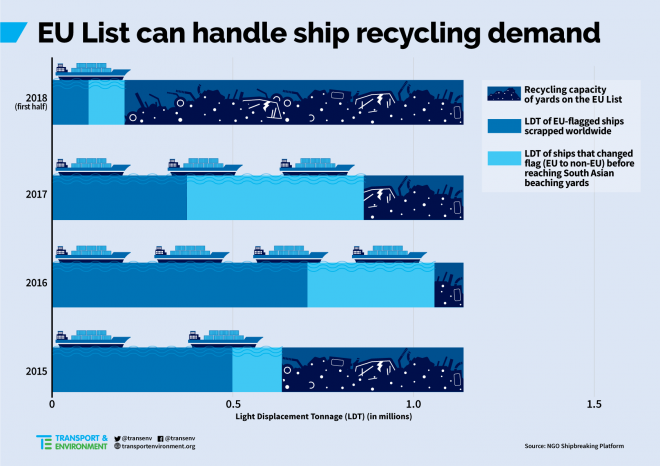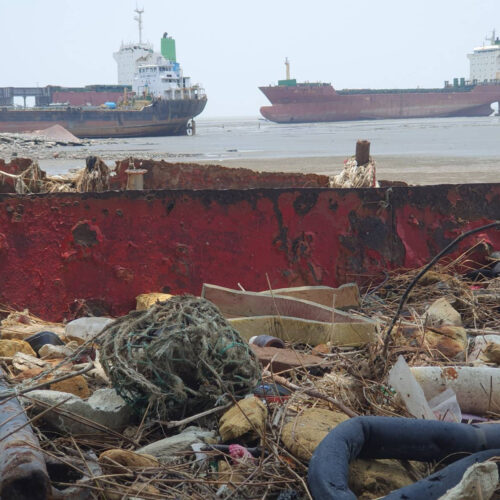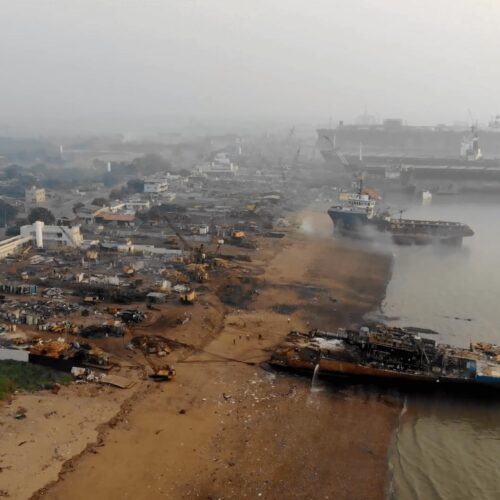Press Release – Europe has capacity to recycle its ships, new data shows – yet shipowners want to use dangerous, polluting yards abroad
Ship recycling yards approved by the EU will have enough capacity to handle demand from EU-flagged ships that need to be scrapped, a new analysis shows. The shipping industry wants low-cost ship ‘breaking’ yards outside the EU – with dangerous working conditions and poor environmental standards – to be added to the EU list of approved facilities in order to meet demand from vessels bound by the bloc’s ship recycling law, which enters force on 1 January 2019. But the current EU list can accommodate the numbers and sizes of EU-flagged ships that are scrapped every year, the new report by NGOs Shipbreaking Platform and Transport & Environment (T&E) shows.

The 20 EU yards currently recognised as meeting ship-recycling standards have had the capacity to handle all EU ships broken since 2015, the report shows. Shipbreaking Platform and T&E said lawmakers should not succumb to pressure to either delay the implementation of the regulation or add sub-standard shipbreaking facilities – which would never be allowed to operate in EU countries – to the EU list.

Yards that use the beaching method are of particular concern. Vessels are full of hazardous materials, including asbestos, chlorine compounds, heavy metals and residue oils. On a tidal mudflat it is not possible to contain these toxics – instead they are washed out to the sea, and ravage coastal ecosystems. Without proper protective equipment, workers are also sickened and exposed to unnecessary risk. Accidents at the beaching yards kill or maim young men each year due to unsafe practices. [1]

Shipowners misleadingly cite the EU yards’ historical capacity to claim that they are over-capacity. However, this does not take into account the EU facilities operating under capacity due to being undercut by sub-standard competition overseas. It also ignores the capacity of newly-opened yards which are just starting to operate.

The European Commission, national experts and stakeholders meet on 3 October to discuss the implementation of the regulation.
Related news

Platform News – Atlantic Container Line steaming for sunshine
During the summer, the Swedish-flagged ATLANTIC CARTIER and ATLANTIC CONVEYOR, the two last G3 vessels operated by the Italian Grimaldi Group’s subsidiary Atlantic Container Line (ACL),… Read More

Press Release – European commission reports on feasibility of a financial instrument
The European Commission released its report on the viability of a financial incentive for sustainable ship recycling under the EU Ship Recycling Regulation this week. Whilst… Read More

Press Release – NGOs call upon authorities to sanction illegal exports of cruises
At least three passenger ships have been illegally sold for scrapping on the beaches of South Asia in the last months.
... Read More
Press Release – Platform publishes list of ships dismantled worldwide in 2024
409 ships were dismantled globally in 2024, of which 255 ended up in South Asian yards. Bangladesh remains the shipping industry’s first choice for scrapping, despite grave consequences for workers, local communities and fragile coastal ecosystems.
... Read More
Press Release – Danish opposition parties call on Government to stop beaching of Maersk vessels
The Danish Environment Minister, Esben Lunde Larsen, had to answer to the Parliament yesterday following questions put to the Government by all the opposition parties. The… Read More

Press Release – The hypocrisy of better beaches: winners of the “Public Eye Investigation Award” shed light on shipbreaking in Alang and Swiss companies’ involvement
Gie Goris and Nicola Mulinaris received Public Eye’s “Investigation Award”.
... Read More

